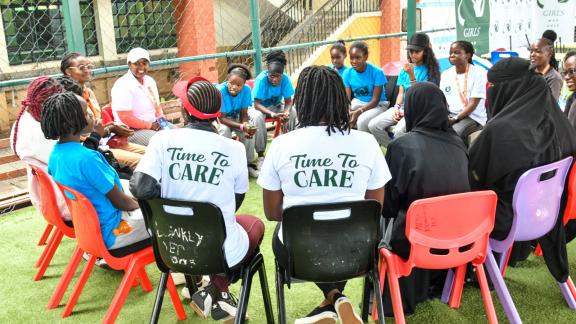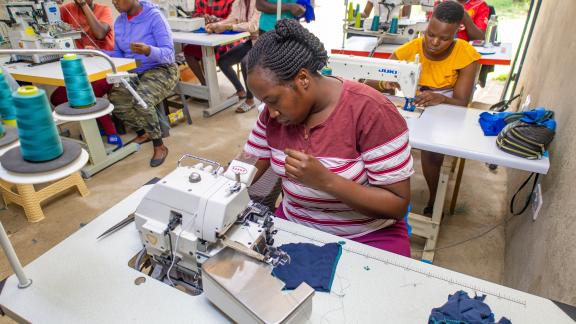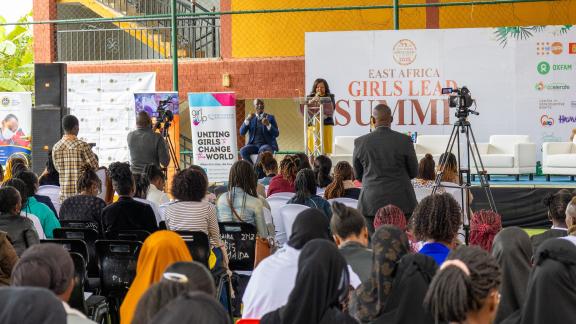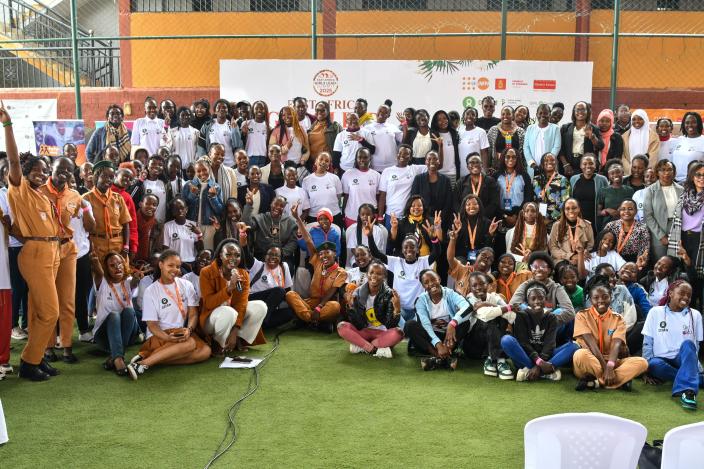Women’s limited participation in the social, economic and political processes in Kenya is majorly a factor of the historical patriarchal nature of the society. They are therefore faced with both systemic and cultural challenges in their bid to contribute to the County or National development agenda. Discriminatory social norms and gender stereotypes continue to be entertained in both formal and informal institutions thereby hindering progress towards gender equality. A case in point is in the unequal participation and representation of women in political process, which has been informed by biased customs and stereotypes.
Women’s enjoyment of economic rights is also limited by the unequal distribution of resources, and limited access to factors of production, such as land and financial capital. There has been a positive shift in the social norms and practices that used to limit women’s access to education and their enjoyment of the right to employment and adequate standards of living. The challenge arises when the educated girls become women, and their ambitions of participating in leadership positions are blocked despite the fact that they are qualified. Social norms that condone violence against women and girls also prevent them from equal participation and full enjoyment of life. These entrenched social norms, practices and structural challenges, at all levels have created an environment of gender inequality that prevents the transformation of gender power relations that is necessary to realise the empowerment and advancement of women and girls.
Oxfam continues to pursue its commitment to promote sustained, widespread changes in attitudes, practices and beliefs about gender power relations in order to further women’s rights and gender justice. In an effort to achieve this, Oxfam aims to contribute to a significant increase in women’s participation in social, economic and political representation and influence in targeted decision-making processes in order to promote women’s rights in policy and practice.
We aim to bring change at scale by first understanding and challenging key structural, institutional and deeply entrenched blockers of progress on women’s rights. To achieve this, we are working with women rights organisations, national networks, opinion shapers, including religious institutions to support shifts in attitudes, challenge and change power relations at the household, community and national levels.
What does success look like?
Transformed Kenyan society where power, resources, and opportunities are more equitably shared. This transformation is marked by increased and sustained participation of women in political processes and decision-making spaces at all levels. Women not only occupy leadership positions but actively shape policies and agendas that drive Kenya’s sociopolitical and economic development.
Shift in public knowledge, attitudes, and perceptions regarding gender equality. We anticipate a society where gender-inclusive values are not only espoused but consistently practiced in homes, workplaces, governance structures, and cultural institutions. This includes men and boys playing active roles in challenging patriarchy and championing gender justice
Society free from gender-based violence, where women and girls can fully enjoy their rights, express themselves freely, and access justice without fear or limitation. This requires dismantling systemic barriers and strengthening protection, prevention, and accountability mechanisms.
Increased entrepreneurial participation and ownership by women, especially those historically excluded. It involves not just access to markets or capital but the creation of equitable business environments where women thrive as innovators, employers, and economic leaders, ultimately contributing to a just and inclusive economy.
- Increased women's participation in political processes and more women holding positions of leadership to contribute to the development of sociopolitical and economic growth of Kenya.
Programmes outlook
The Women’s Rights Fund (WRF) Project: A strategic initiative aimed at shifting power and resources to Women’s Rights Organizations (WROs. The fund supports WROs working on gender-based violence, women’s economic empowerment, leadership, and sexual and reproductive health and rights by offering flexible, long-term financial and technical assistance. Through a combination of core, unrestricted, and project-based funding, WRF enables WROs to sustain their advocacy efforts and respond to emerging issues with agility. It also invests in institutional capacity strengthening through tailored training in strategy, finance, fundraising, and safeguarding. In addition, the fund integrates mental health and well-being support, particularly within GBV response efforts.
The Time to Care Project: Builds on the work of We Care by placing greater emphasis on care infrastructure and the rights of paid care workers. It focuses on strengthening systems that support unpaid carers while also protecting and empowering paid care workers, most of whom are women working in informal and undervalued roles. The project promotes investment in care infrastructure, including community-based childcare and elder care services, to reduce the burden on households and create dignified employment opportunities. It advocates for fair wages, labor protections, and social security for care workers, while also challenging gender norms by encouraging more equitable sharing of caregiving responsibilities. Grounded in a feminist, rights-based, and intersectional approach, Time to Care supports local organizations to enhance their leadership, programming, and advocacy on care. The aim is to improve gender equality and strengthen care infrastructure for women and girls in Kenya.

Participants at a #TimeToCare workshop in 2025
The We Care Project: Oxfam’s flagship initiative addressing unpaid care and domestic work as a critical factor in achieving gender equality and economic development. Implemented in four countries in Southern and Eastern Africa with regional and global components, the project seeks to shift the narrative of care from being a private women’s issue to a public development, economic, and gender justice concern. At its core, We Care promotes the three Rs framework: Recognize, Reduce, and Redistribute unpaid care work. It works to ensure care is valued by women, men, communities, and governments, and included in policy and economic planning. It supports time and energy-saving infrastructure such as water access and childcare services to ease the burden of care, while advocating for equitable sharing of care responsibilities and redistribution of its costs from poor families to the state and employers. By challenging harmful gender norms and engaging policy actors, We Care places care work at the heart of feminist economic justice.
The Impact Small and Medium Enterprise (iSME) Project: Focuses on strengthening the economic power of women by supporting women-led businesses and fostering a more inclusive financial ecosystem. It provides business development services such as financial modeling, investment readiness, and branding, while also facilitating access to capital by linking women entrepreneurs with investors and financial institutions.

Staff at work in one of the enterprises supported by the ISME project in Kajiado
Beyond direct support, the project works to influence policy environments that often disadvantage women, advocating for reforms that promote fair taxation, gender-responsive procurement, and inclusive lending frameworks. It also fosters networks and peer learning opportunities to strengthen solidarity among women in enterprise. Importantly, the project integrates gender mainstreaming throughout, ensuring that all support mechanisms are tailored to the lived realities of women, particularly those from marginalized backgrounds. Through this, the project not only builds individual capacity but challenges the structural barriers that hinder women’s economic advancement.
The Transformative Women Leadership Project: Designed to enhance women’s leadership across political, economic, and social spheres. The project builds leadership capacities through mentorship, training, and exposure opportunities for women at different levels from grassroots leaders to those in senior decision-making roles. It also supports women to actively engage in policymaking processes and governance structures to ensure they are gender-responsive and inclusive. In addition to individual leadership development, the project strengthens the ecosystem of women’s rights organizations and feminist movements, creating a supportive environment for collective action and advocacy. Rooted in feminist principles, the project recognizes that shifting power is not only about increasing the number of women in leadership but also about transforming leadership itself to be more inclusive, responsive, and grounded in social justice.

Participants at the East Africa's GirlUp leadership forum in Nairobi in 2025.
